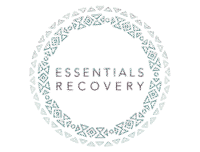Beginning the journey of addiction recovery can feel overwhelming, especially when you’re not sure where to begin. For many people, just admitting there’s a problem is a monumental step. From there, the path to recovery includes seeking support, understanding your needs, and building a plan that promotes long-term healing. No two journeys are the same, but there are common starting points and proven steps that help make the process more manageable and effective.
Taking that first step doesn’t require having all the answers. It simply requires the willingness to look for change and the courage to ask for help. Recovery is possible, and by understanding where to start, you or your loved one can take those important initial strides toward a healthier life.
Recognizing the Need for Help
The first part of any recovery journey involves recognizing that substance use is no longer manageable. This recognition might come as a personal realization after repeated consequences or through concern expressed by family, friends, or coworkers. Denial is a powerful force in addiction, and it often masks the severity of the problem. Coming to terms with the reality of addiction is a painful but necessary step toward healing.
It helps to look honestly at the impact drugs or alcohol have had on your life. Maybe relationships have suffered, or work performance has declined. Maybe you’ve noticed changes in your physical or emotional health. These signs, when acknowledged without judgment, can become the push toward seeking a better way forward.
Understanding Your Options
Once you’ve decided to pursue recovery, the next step is exploring treatment options. Addiction is complex and affects people differently, so a one-size-fits-all approach rarely works. The right path often depends on the severity of the addiction, the substances involved, mental health conditions, and individual life circumstances.
Detoxification may be necessary if you’re physically dependent on substances. This process clears the body of drugs or alcohol, usually under medical supervision to ensure safety. After detox, ongoing treatment is needed to address the psychological and behavioral aspects of addiction.
Inpatient rehab offers a structured environment where individuals live at the facility and receive intensive therapy. This option is ideal for those with long-standing or severe addictions. Outpatient programs provide flexibility for people who need support but also have responsibilities at home or work. Therapy sessions, support groups, and education are typically part of both approaches.
Medication-assisted treatment may be used for certain types of substance use, such as opioid or alcohol dependence. These medications can ease withdrawal symptoms and reduce cravings, making it easier to focus on recovery efforts.
Reaching Out for Support
Starting recovery doesn’t mean you have to do it alone. In fact, isolation often makes addiction worse. Building a support system is one of the most important parts of early recovery. This might include reaching out to loved ones, joining a recovery group, or working with a therapist or counselor.
Support groups such as Alcoholics Anonymous (AA), Narcotics Anonymous (NA), or SMART Recovery offer peer-based support from people who understand the struggle firsthand. These groups often provide not only accountability but also a sense of community that can be incredibly comforting during hard times.
Professional support is just as critical. Therapists and addiction counselors can help you explore the underlying causes of your addiction, teach you healthier coping mechanisms, and guide you through emotional and behavioral changes. Group therapy is another powerful resource, giving participants a chance to connect and grow together.
Creating a Safe Environment
Making changes to your physical and emotional environment plays a huge role in maintaining progress. That might mean distancing yourself from people who still use substances or avoiding environments that trigger cravings. Creating a safe, stable space where recovery can flourish is an essential early task.
This can also include adjusting daily routines and habits. Setting regular sleep and meal times, prioritizing self-care, and introducing positive activities can all help create a more balanced lifestyle. These small changes can build a sense of stability and reinforce a new direction.
Some people benefit from moving into sober living environments—structured homes where individuals in recovery support one another while building independent lives. These spaces help bridge the gap between treatment and returning fully to the community, offering structure, accountability, and fellowship.
Setting Realistic Goals
Recovery is a marathon, not a sprint. Setting small, achievable goals can help maintain motivation and provide a sense of progress. These goals might include attending a certain number of support meetings each week, establishing a healthy sleep schedule, applying for a job, or reconnecting with loved ones.
Avoid setting unrealistic expectations. Recovery includes setbacks, and progress isn’t always linear. If goals are too lofty or rigid, falling short can feel discouraging. Give yourself permission to grow at your own pace. Celebrate the small wins—they add up and provide momentum.
Setting personal goals also helps shift the focus from just quitting substances to building a meaningful life. Recovery isn’t just about abstaining; it’s about creating a life where you no longer feel the need to escape.
Addressing Co-occurring Issues
Many individuals struggling with addiction also face mental health challenges such as depression, anxiety, PTSD, or trauma. These co-occurring conditions can make recovery more difficult if left untreated. That’s why comprehensive care should include a mental health assessment and access to therapy or psychiatric services if needed.
It’s important to be honest about your mental health when speaking with treatment professionals. Integrated care that treats both addiction and underlying emotional issues offers the best chance at long-term recovery.
Trauma-informed therapy, mindfulness practices, and medication management are just a few tools that can help manage these challenges. Learning to cope with mental health symptoms in healthy ways builds resilience and reduces the risk of relapse.
Embracing New Coping Strategies
Addiction often becomes a primary way to cope with stress, pain, or uncomfortable emotions. One of the earliest challenges in recovery is finding new tools to handle these feelings. Therapy, meditation, exercise, creative outlets, and journaling can all offer healthier alternatives.
These new strategies take time to develop. You might feel awkward at first, and that’s okay. It’s normal to reach for what’s familiar when you’re upset or overwhelmed. Over time, as you practice and refine your new skills, they’ll start to become second nature.
Developing emotional awareness is a key part of this process. Recognizing when you’re angry, sad, anxious, or stressed—and having a plan for responding to those emotions—can make a major difference in avoiding relapse.
Building a Life in Recovery
As you move forward, the focus gradually shifts from quitting substances to building a fulfilling life in recovery. This means reconnecting with old passions or discovering new interests, forming healthy relationships, and finding purpose in everyday activities.
Volunteering, going back to school, joining a hobby group, or pursuing career goals can all help provide meaning and direction. Recovery allows people to rebuild their identity in ways that feel authentic and satisfying. It’s not about returning to the way life was before addiction—it’s about creating something new and stronger.
This is also a good time to address long-term goals around health, finances, and personal development. Taking control in these areas reinforces a sense of independence and shows just how far you’ve come.
Committing to Continued Growth
Recovery is a lifelong journey. It’s not something that ends after 30, 60, or even 90 days. Ongoing commitment is necessary, and that means continuing therapy, staying involved in support groups, and checking in with yourself regularly.
There will be challenges, moments of doubt, and even setbacks. But every day offers a new chance to make progress. By remaining honest, open, and willing to ask for help, you can build a life that’s not only free from substances but rich in connection, growth, and peace.
Whether you’re just starting or already on your way, remember that recovery is possible, and every step you take is one worth celebrating. Call us today at 855-509-1697.



